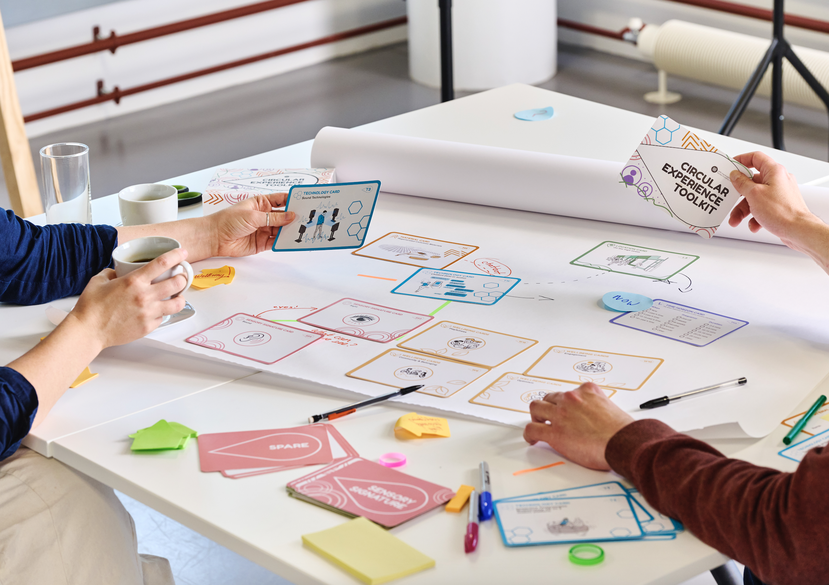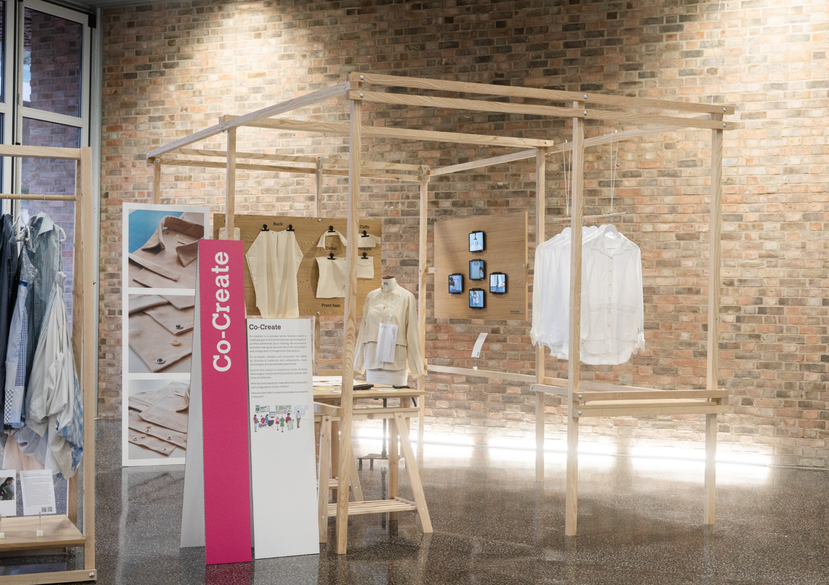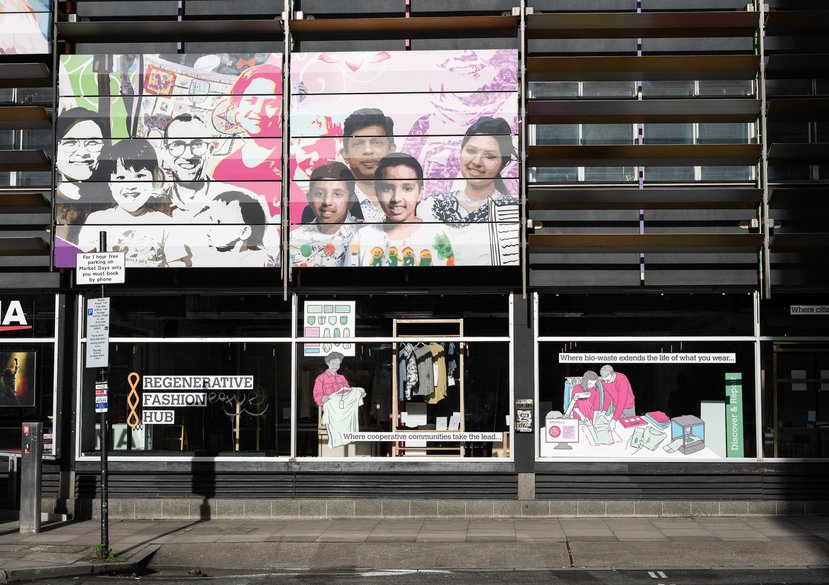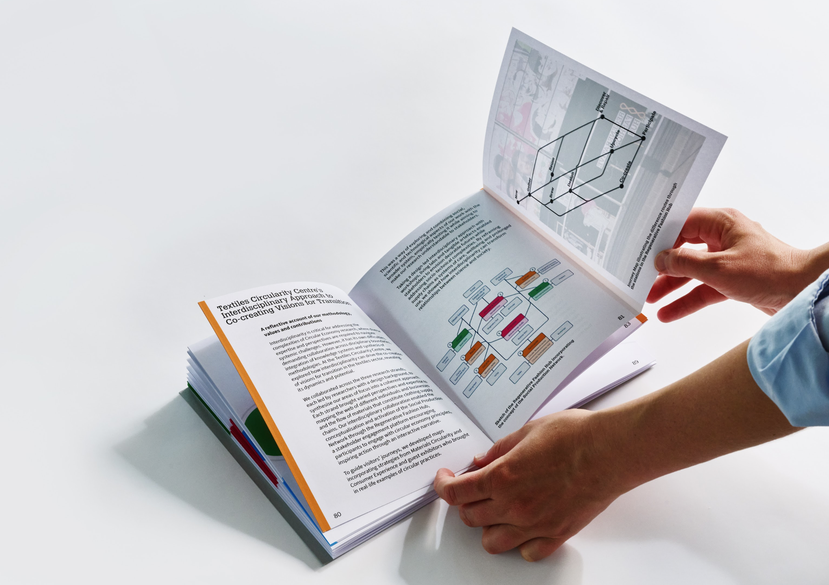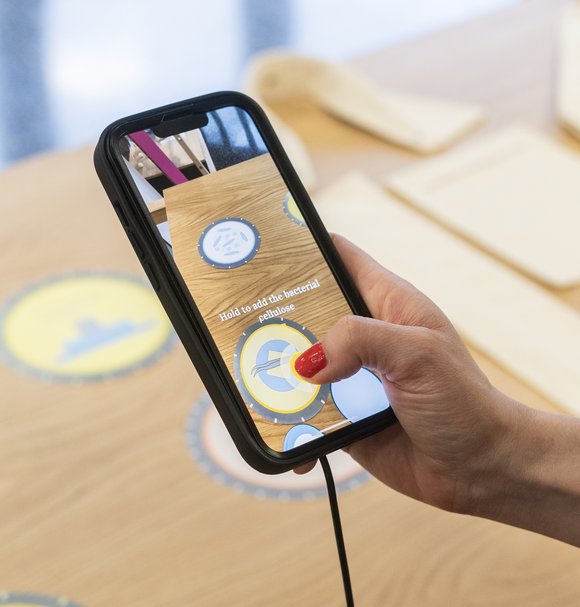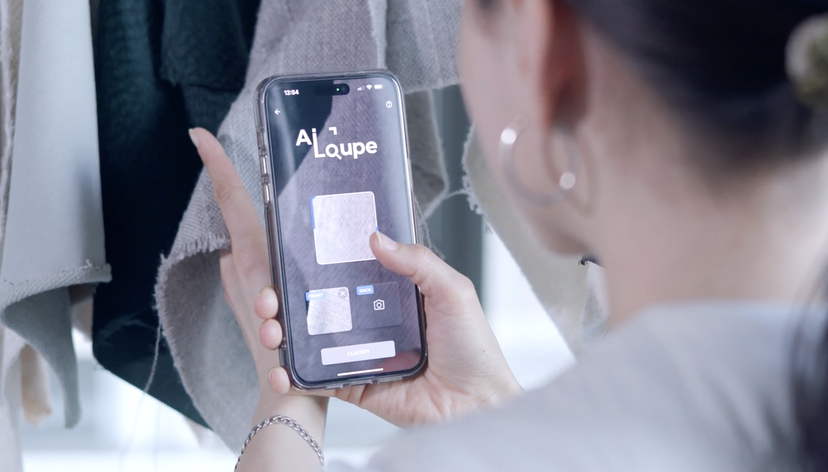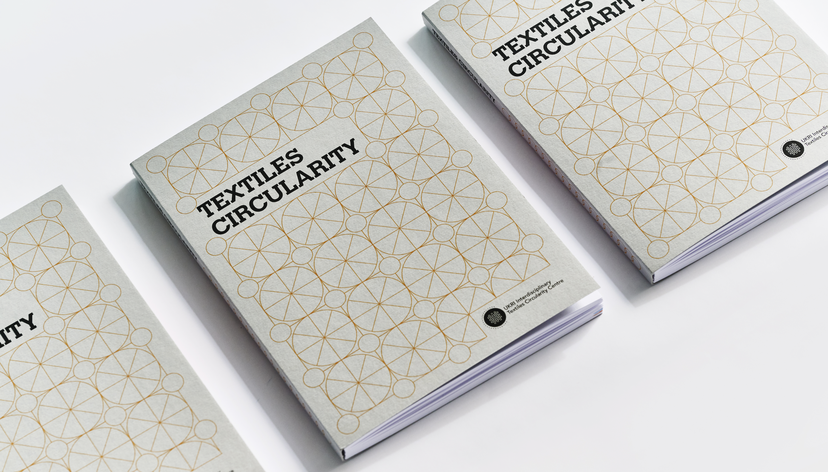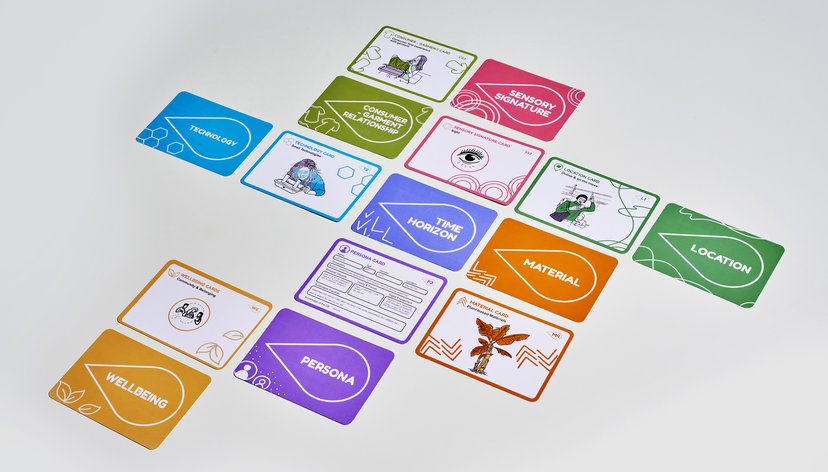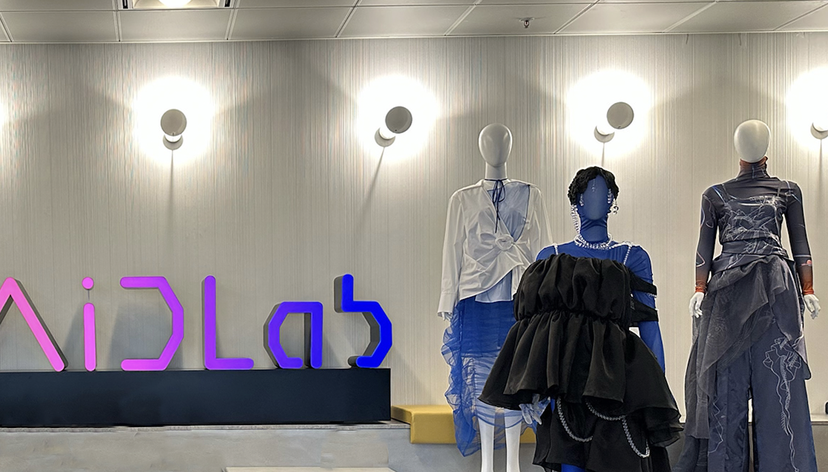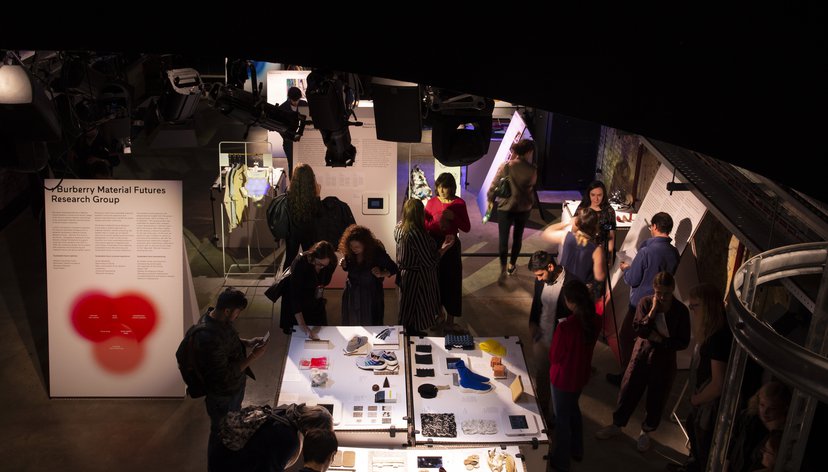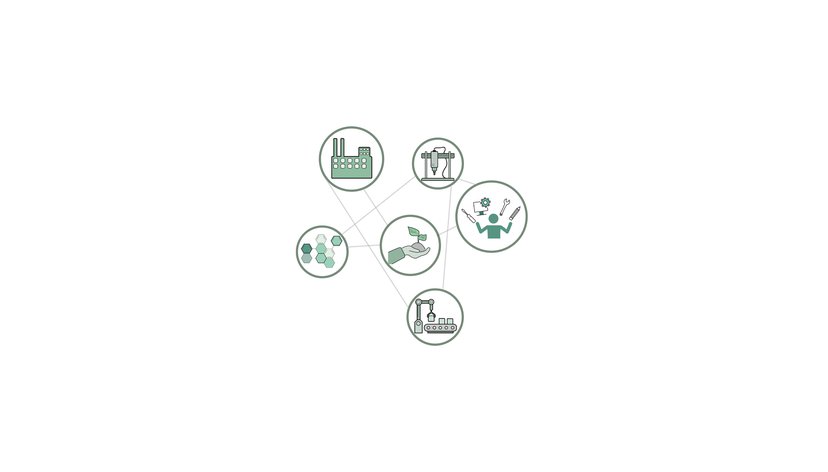
Funded by UKRI, the Textiles Circularity Centre aimed to enable the transition to a circular textiles economy through an interdisciplinary approach to research. It combined research into circular supply chains, materials innovation and consumer experience to envision a circular future for the fashion-textiles industry.
The Textiles Circularity Centre envisioned a circular future for the fashion-textiles industry. In this future, bio waste is used to manufacture textiles, there is a UK supply chain of circular biomaterials for the SME apparel-fashion industry, and citizens actively participate in the circular economy.
Building a circular economy requires a whole-systems approach. The Textiles Circularity Centre combined three distinct strands of research, Materials Circularity, Consumer Experience and Circular Supply Chain, to envision a transition to a circular future for the fashion industry.
In March 2025, we published Textiles Circularity, a book that draws together all of our research from the four year long project.
Key details
Gallery
More information
The Challenge
In today's throwaway fashion economy, we buy clothes at an ever-increasing rate – 25 kg each per year – and have hundreds of items in our wardrobes. The industrialisation of clothing production, fuelled by low wages and poor working conditions in the global South, comes at a price. The resources consumed have doubled during the 21st Century and could double again in a decade. Clothing is responsible for 5-10% of global carbon emissions and millions of tonnes of waste. It deprives the thirsty of water and diverts land from growing food.
We import 1169 kt (1,169,000 tonnes), produce 142 kt and export 249 kt of clothing each year, which means we consume just over 1 million tonnes (1 Mt). The nation’s wardrobe grows by 60 kt per year. About 600 kt of discarded clothing is collected, of which 360 kt is exported and 190 kt is reused in the UK. 70 kt is reused directly (via e.g. resale platforms such as Vinted, or hand-me-downs). Less than 1% is recycled. 400 kt becomes waste (including the waste from UK production), most of which is incinerated. 300 kt of waste is produced abroad from producing UK-bound.
In order to reduce the environmental impact of the fashion industry, we must produce less fibre and reduce demand by keeping clothes in use for as long as possible. Increasing the value of used clothes through better durability, upcycling and reuse infrastructure will be essential for sustainable business models.
Our Approach to Research
The Textiles Circularity Centre took an interdisciplinary approach, bringing together researchers from across different disciplines with expertise spanning human-centred design, materials design and science, cognitive neuroscience, sensory interaction design and manufacture.
Research was divided into three interconnected strands:
Materials Circularity
The Materials Circularity Research Strand proposes an alternative course of action for materials, one in which we solely use waste for clean, on-demand textile production in which garments are designed for reuse and regeneration, and in which environmental impacts are dramatically reduced.
Using lab-proven biotechnology and circular design strategies, Materials Circularity is transforming bio waste into renewable polymers, fibres and flexible textile materials that can be repaired and recycled. They are also innovating advanced manufacturing techniques such as 3D weaving, robotics, additive manufacturing with circular design, to produce circular textiles for apparel.
The work in the Materials Circularity Research strand had three stages, each of which with its own research questions and challenges:
Recycling: How can we develop sustainable high-quality textile polymers from end-of-life textiles and other waste?
Regeneration and Fabrication: How will we manufacture advanced textiles from these polymers?
Design of Use: How do we ensure our new textile processes thrive in the context of use?
Consumer Experience
The Consumer Experience Research Strand designed consumer experiences that give people agency to participate in the circular economy. Their research amplified the couplings between material flow and human wellbeing by designing experiences that engage people in interactive, meaningful, co-creative and sustainable cultures, transforming their role from ‘consumers’ to ‘active co-creators’.
This research aimed to provide insights to facilitate a change in cultures of consumption and adoption of the new circular textiles being developed, offering an alternative to the fast fashion model. This new culture is based on a new relationship between consumers and their products; one where we see consumers as custodians of textiles.
Circular Supply Chain
The Circular Supply Chain Research Strand worked to propose new configurations for a transparent and circular supply chain for biomaterials and bio-based material textiles for apparel, that connects multiple stakeholders from organic by-products and waste to SME apparel/design brands and their consumers.
It developed a series of tools to enable fashion brands and manufacturers to redesign their supply chains to more circular, closed loop models based on local manufacturing and reuse.
Outputs
Throughout the project, we ran a series of seminars that brought together experts from across different disciplines to share their research and discuss ideas.
Regenerative Fashion Hub
The Regenerative Fashion Hub was the Textile Circularity Centre's stakeholder engagement platform, which brought our research to the high street to help consumers visualise a more sustainable, circular future for the fashion and textile industries.
It was an exhibition showcase of bio textiles development, product and consumer experience designs that bring to life the journey of biowaste from source of waste through to the consumption of apparel. The showcase was activated by a set of research studies, seminars, and ‘open house’ sessions.
We ran three main iterations of the Regenerative Fashion Hub: Stratford, London in 2022; RCA Battersea in 2024; Rich Mix in Shoreditch, London, 2024.
Textiles Circularity Book
In March 2025, we launched Textiles Circularity, a book that brings together all of our research from across the four year project. Learn more here.

